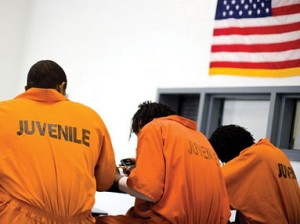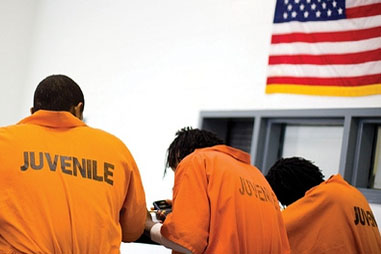 A number of racial discrepancies were found among Michigan’s juvenile life without parole (JLWOP) population in a new report released by the American Civil Liberties Union in conjunction with Second Chance 4 Youth. The state’s JLWOP population is the second highest in the nation trailing Pennsylvania.
A number of racial discrepancies were found among Michigan’s juvenile life without parole (JLWOP) population in a new report released by the American Civil Liberties Union in conjunction with Second Chance 4 Youth. The state’s JLWOP population is the second highest in the nation trailing Pennsylvania.
The report, Basic Decency: An Examination of Natural Life Sentences for Michigan Youth, analyzes Michigan’s juvenile justice system and was overseen by lawyer Deborah LaBelle, director of the Juvenile Life Without Parole Initiative.
On average, juveniles charged with murder were 22 percent less likely to receive plea offers if the victim were white rather than African-American, the report states. Additionally, the researchers say the makeup of youths serving life sentences within Michigan are heavily skewed towards racial minorities, who constitute almost three- quarters of the state’s JLWOP population despite representing only 29 percent of the state’s total juvenile population.
Nationally, the report indicates African-American youths represent 28 percent of juvenile arrests, despite representating nearly 35 percent of the total juvenile defendant population that is waived to adult courts.
Furthermore, the report states that attorneys representing juveniles sentenced to life without parole have received disciplinary actions from the Michigan state bar at elevated rates. About 38 percent of lawyers representing youths with life without parole sentences having been sanctioned or disciplined for what the report calls “egregious violations of ethical conduct.” The rate for Michigan attorneys generally, the researchers note, rests at about five percent.
The state’s juveniles also rejected plea offers at higher rates than that of the adult population - resulting, frequently, in scenarios where Michigan adults received lighter sentences than juveniles convicted of equivalent crimes. According to the report, when youths were represented by a lawyer not been disciplined by the state bar, Michigan juveniles were about 43 percent more likely to accept a plea bargain than those represented by an attorney that had been reprimanded or sanctioned.
The report concludes by urging legislators to repeal JLWOP sentences for youths under 18, in addition to implementing parole reviews for youth serving life sentences who are eligible for parole after 10 years of incarceration.
Currently, more than 370 juveniles have been sentenced to life in prison without the possibility of parole in Michigan.
Photo via the American Constitution Society for Law and Policy.
